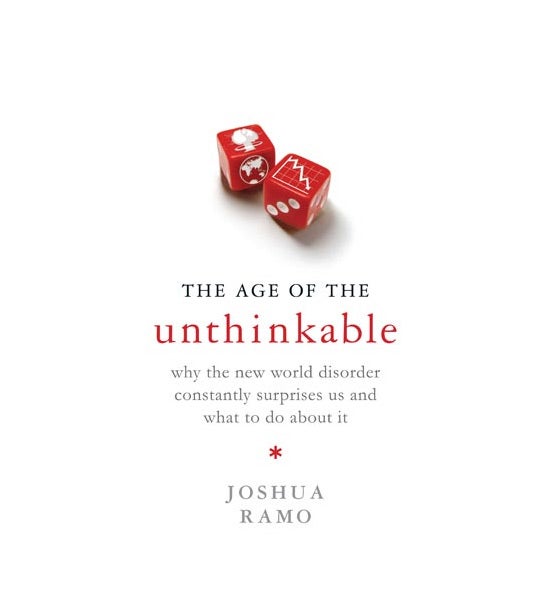Andrew Keen: In this age of the unthinkable, we must act like revolutionaries

Your support helps us to tell the story
From reproductive rights to climate change to Big Tech, The Independent is on the ground when the story is developing. Whether it's investigating the financials of Elon Musk's pro-Trump PAC or producing our latest documentary, 'The A Word', which shines a light on the American women fighting for reproductive rights, we know how important it is to parse out the facts from the messaging.
At such a critical moment in US history, we need reporters on the ground. Your donation allows us to keep sending journalists to speak to both sides of the story.
The Independent is trusted by Americans across the entire political spectrum. And unlike many other quality news outlets, we choose not to lock Americans out of our reporting and analysis with paywalls. We believe quality journalism should be available to everyone, paid for by those who can afford it.
Your support makes all the difference.What's the connection between Michael Moritz, Silicon Valley's leading venture capitalist, and Hizbollah, the Middle East's leading terrorist organisation?
According to Joshua Cooper Ramos, the author of the stimulating The Age of the Unthinkable (Little Brown 2009), Moritz and Hizbollah are both able to think and act like revolutionaries in a contemporary era defined by surprise and innovation. They're both "virtuosos of the moment", leveraging the complexity of today's world to realise their goals.
All new media entrepreneurs should read The Age of the Unthinkable. The ability to act like a revolutionary is what distinguishes the grand digital innovators – Steve Jobs, Mark Andreessen, Larry Page and Sergei Brin – from everyone else. And Ramos's message is acutely pertinent, as the moribund Web 2.0 world is being swept away by the revolutionary stream of Twitter and its ecosystem of real-time communications. This week and last week represent a particularly unthinkable fortnight in the history of new media. Last Thursday, Google announced the launch of Wave – an ambitious new communications platform for the internet. On the same day, Microsoft announced the launch of Bing, a search-engine designed to chip away market share away from Google's quasi monopoly in search.
Meanwhile, this Saturday represents the much anticipated American launch of Palm's Pre, a smartphone device upon which Palm have, quite literally, bet the entire company.
The contrast between Google and Microsoft is revealing. The static Bing search-engine appears neither surprising nor innovative – just one more example of Microsoft's persistent failure over the last decade to innovate or surprise. But Google's Wave appears to be an attempt to reinvent both email and instant-messaging in today's real-time internet. As Lars Rasmussen, the Sydney-based engineer driving the Google project, said: "Wave is what email would look like if it were invented today." With Wave, Google is once again trying to revolutionise new media. In 1999, the launch of their user-generated search engine was the first barricade stormed by the Web 2.0 revolution. Wave might represent a similar landmark.
Is Palm like revolutionary Google or reactionary Microsoft? When Palm demonstrated early versions of its smartphone in Las Vegas in January, many pundits were sufficiently impressed to describe the Pre as a legitimate iPhone killer. But I'm not convinced that the Pre will save Palm. To borrow again from Ramos, the Pre appears neither shockingly innovative nor surprising.
In the age of the unthinkable – from the mountains of southern Lebanon to the flats of Silicon Valley – only permanent revolutionaries will survive.
Join our commenting forum
Join thought-provoking conversations, follow other Independent readers and see their replies
Comments